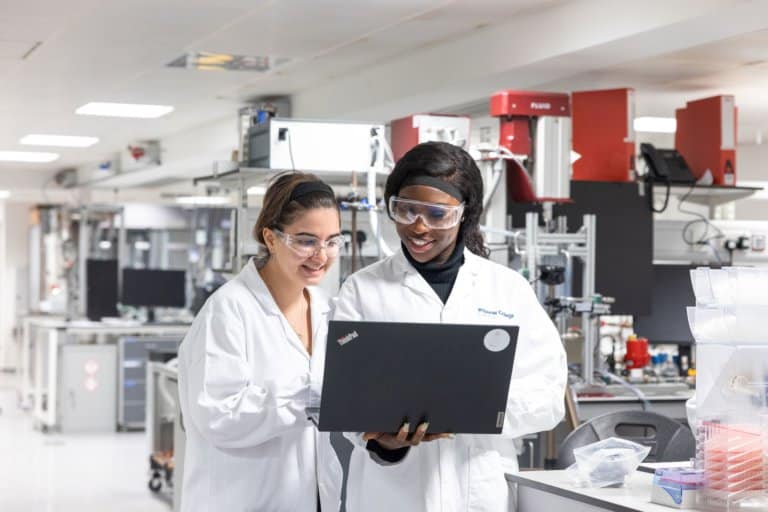
From developing sustainable energy solutions to creating life-saving pharmaceuticals, chemical engineering plays a vital role in keeping modern society afloat. With this comes a need to ensure today’s chemical engineers have the skills, knowledge and capabilities to address tomorrow’s greatest challenges.
The importance of a world-class education in chemical engineering cannot be understated — and the best universities embraces this. They equip students with a solid foundation in the scientific principles, engineering concepts, and technical skills necessary for a successful career. It also fosters critical thinking and problem-solving abilities — two qualities essential to innovation.
An ever-increasing global demand for clean energy, advanced materials and efficient industrial processes make such qualities all the more critical. In this, an education in chemical engineering is not just a pathway to a great career — it directly results in meaningful contributions to the progress and well-being of society.
Here are three universities with comprehensive chemical engineering programmes preparing students to become the leaders, innovators and problem-solvers of tomorrow:
Purdue University
The Davidson School of Chemical Engineering at Purdue University is no stranger to excellence. Home to the fourth best engineering graduate program in the US, the institution has gained a reputation for pushing the boundaries of knowledge in the field – making a real impact on the world in the process.
For graduates looking to elevate their potential in the industry, the Davidson School of Chemical Engineering offers a 12-month Professional Master’s Program (PMP). It’s a unique, fast-paced program that takes all students’ professional aspirations into account, giving them a solid foundation in the field and helping them chart out their individual paths with precision and confidence.
What sets the PMP apart is the opportunity to gain specialized knowledge and exposure in seven key concentrations: Biochemical Engineering; Data Science; Energy Systems Fundamentals and Processes; Gas and Petroleum Engineering; Kinetics, Catalysis and Reaction Engineering; Pharmaceutical Engineering; and Polymer Science and Engineering.
Students and alumni like Amanda King were drawn to the PMP for its specialized courses in these concentration areas. “These classes played a crucial role in strengthening my knowledge and provided me with valuable insights that I later referenced during interviews for industry positions,” she says.
Enrolling in the PMP does not require an undergraduate degree in chemical engineering – students with non-chemical engineering backgrounds can pursue a 16-month tailored curriculum. “As a chemistry graduate, I had always learned about how things work in theory, but the PMP gave me exposure to the reasons why they work in the real-world industry of chemical engineering. It accelerated my career and gave me the thought process of an engineer with business acumen that laid the groundwork for my professional career,” shares graduate Samuel Carew.
It’s a strategy that works. PMP graduates see a 94% employment rate within six months of graduation. Both King and Carew work in the manufacturing science and technology department for drug production at Catalent, where their discoveries and creations help shape the world of pharmaceutical engineering. “If I had to summarize my experience, I would say it was transformative,” says Carew.
Imperial College London
Ranked first among Russell Group universities for research impact, Imperial College London is home to a Department of Chemical Engineering that works with industry powerhouses to create solutions with immediate, real-world impact. Think reducing carbon emissions, developing clean energy technologies and infrastructure, and producing innovations in healthcare — their research interests range from the molecular to the mega-scale.
The Department of Chemical Engineering first offered undergraduate courses in 1937, making it one of the oldest, most experienced chemical engineering divisions in the UK. Its integrated four-year degree programme is the first in the country to fulfil the most recent Engineering Council MEng requirements too. The course combines core foundation subjects, design, specialised modules, sometimes a year abroad, and of course, laboratory work.
To graduate chemical engineers who will continue Imperial’s legacy of solving the world’s greatest challenges, the college offers students unlimited access to state-of-the-art facilities — all of which are leveraged alongside a cadre of highly-skilled technicians.
Students can carry out hands-on research in Imperial’s bespoke undergraduate teaching laboratory. They have access to the Analytical Services laboratory which houses a suite of major analytical instruments. Then there’s the futuristic carbon capture pilot plant. Stretching over four floors, it is the only facility in the world that teaches undergraduates the ins and outs of running a plant.
Spaces like these are just one of the reasons why Imperial Chem Eng is consistently rated as one of the leading departments in the UK and the world for research in chemical engineering or why student satisfaction at Imperial is now at 90%.
Singapore National University
As Singapore’s flagship university and one of Asia’s best, the National University of Singapore (NUS) offers a global approach to education, research and entrepreneurship, with a focus on Asian perspectives and expertise. Engineering programmes at its College of Design and Engineering (CDE) are ranked eighth in the world in the latest Times Higher Education World University Rankings 2023 by Subject.
NUS is home to one of the largest chemical engineering departments and the oldest chemical engineering department in Singapore. Undergraduate, postgraduate and graduate certificates stand out for several reasons.
They are enriched by the views of a community with over 200 scholars from all over the globe, informed by research activities in a broad spectrum of fundamental, applied and emerging technological areas, and leveraging active research collaborations with the industry, national research centres and institutes.
Here, postgraduate students learn from faculty members who are experts in their field, engaging in high-impact research in a broad spectrum of areas such as biomolecular and biomedical engineering, chemical and biosystems engineering and chemical engineering sciences.
“CDE is also home to multi-disciplinary research platforms where our research capabilities cut across engineering, architecture and design that bring together exemplary faculty to drive cutting-edge research,” says Prof Teo Kie Leong, Acting Dean for the College of Design and Engineering. “We continue to expand our research focus into frontiers where design, technology, and human factors meet, and multidisciplinary collaboration is enhanced.”
*Some of the institutions featured in this article are commercial partners of Study International







